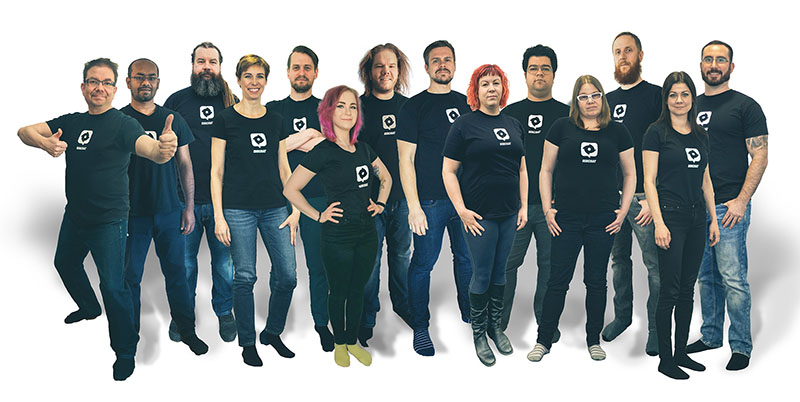Health tech from Finland:
Finnish health tech startup Ninchat powers doctors and nurses with an online communication service in COVID-19 times.
The COVID-19 crisis has led health care organisations to look for online communication solutions.This has created a boom for Finnish health tech startup Ninchat, who has cultivated a secure cloud-based communication service. The company also serves the insurance sector.”Due to corona crisis we are really busy delivering Ninchat on a daily basis to health care organisations. Thousands of new doctors and nurses have started to do online consultations with their patients just in a month in Finland. The growth comes from our current and new health care providers,” says Ville Mujunen, CEO of Ninchat.If negotiations with potential health sector organisations previously took a year, the time is just some days now.
Thousands of doctors and nurses have started to do online consultations within in a month in Finland.
More service at once
The health care organisations use Ninchat mainly in chat and video patient consultations, but also in team communication and live group discussions. The clients include HUS Helsinki University Hospital and big private health care chains such as Terveystalo and Lääkärikeskus Aava.”During the COVID-19 pandemic, doctors and nurses consult patients online more than ever. Some health care organisations have also started to use our simple chatbot feature, for example, cities have chatbots giving guidance on patients’ corona virus questions,” says Mujunen.He highlights that at its best the Ninchat communication service is integrated to the health care provider’s care processes making them more efficient and giving patients better care. This is the competitive advantage of the startup.Let’s take an example. A nurse and a patient meet in chat and write to each other. The nurse learns about the patient’s need, and this time only a neurologist can help she ponders.”Then the nurse sends a service request to a neurologist, whose mobile phone equipped with Ninchat alarms. The doctor is ready to serve and goes to a PC with Ninchat to do an online video consultation and also share screen if needed,” says Mujunen about the cross device use.The doctor can even work in another hospital if the caretakers have agreed so. This efficiency means cost savings.”To add up, the health care provider gets the data to make informed decisions,” adds Mujunen.Ninchat Team
Startup with a strong culture
The core team of Ninchat has been together since 2011. They worked together at the famous IRC-Galleria community service, which they bought, developed and sold to focus on communication service development on their own. The team has vast experience in building Internet services.”We have had this vision about real-time communication between individuals and groups since we kicked off our startup. We have also strived to create a culture, which allows us to make mistakes and learn from them,” explains Mujunen.And yes, he mentions that the team is on a solid growth track. Two new experts have been hired recently during COVID-19 crisis.
Ninchat Fast Facts
Name: NinchatProduct: Cloud-based communication service NinchatFounded: 2011, Ninchat product since 2013Team size: 14Target market: Health and social care, insurance
Notifier: allows sharing of specialist groups among multiple locations (eg. specialist doctors)
Chat & Video messaging: tailored messaging in customer look & feel
Info-bot: chat-bots to inform customers or collect background data before human messaging
Health ecosystem as booster
An important success factor is Ninchat’s customer-centric approach to its communication service development. It is based on a roadmap.”If one client wants the group video feature, we give it a price, move it first in our roadmap, and then other clients get it, too. Each client benefits from other clients’ decisions and everybody wins. This is a unique model I believe,” tells Mujunen.He praises the health ecosystem of Helsinki and Finland in service development. A national patient information system and identity authentication are at place. The demanding health care providers require a customized product and the GDPR rules are strict giving Ninchat team an advantage. The organisation can, for example, easily administer how long they want to keep data.”Finland was also digitalised early and we have very experienced professionals in solution development. This helps in international sales,” highlights Mujunen.In addition to new Finnish clients, the goal is to get international clients from the Nordics and German-speaking Central Europe. They will complement current clients such as pharmacies in Germany and police in the Netherlands.”We have started to look for international distribution channel partners,” ends Mujunen.More Finnish health tech solutions to COVID-19Text: Katja Alaja
Photos: NinchatHealth Capital Helsinki



